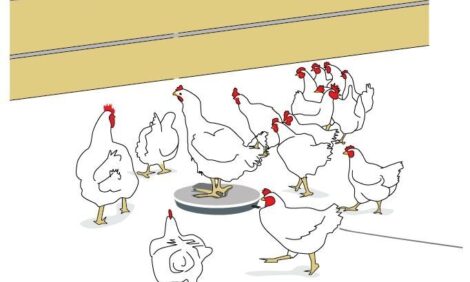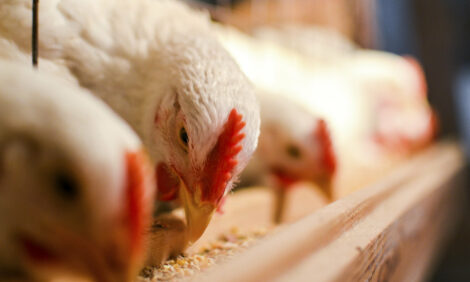



Small Flock Biosecurity
By Carlyle Bennett, Terry Whiting and Glen Duizer, Manitoba Agriculture, Food and Rural Initiatives - With the current concerns about diseases such as avian influenza, owners of small flocks can take simple precautions to help prevent an outbreak of disease in their birds.The following are basic recommendations:
- Buying Chicks, Poults, Birds, Eggs and Meat
As much as possible, obtain birds from one reliable disease free source. Chicks and poults should be obtained from a commercial hatchery.
Do not buy old laying hens or brooded meat-type birds from other farms.
Do not visit other farms to purchase eggs, chickens or turkeys.
If you plan to visit any farms with small or large flocks of poultry, ask them about the health of their birds. Do not visit farms where the birds have had health problems.
Do not have domestic ducks and geese on the same farm as chickens and turkeys.
- Housing and Yard Maintenance
Provide feed and water in clean containers.
Use penning or fencing to limit the range of the birds and to restrict access by other animals, domestic and wild.
Do not allow access to surface water. Groom the range area to prevent the accumulation of rain water. A pond is not necessary for the health of domestic ducks and geese
Avoid clutter in the pen or range area. This includes trimming long grass and removing branches, leaves and other such items. Sunlight is a good disinfectant if it can reach the ground the birds are on. Removing debris also acts as a deterrent to rodents.
Barns that house the flock should be big enough to hold both the type and amount of birds you have, year round if necessary.
- Visitors
Do not allow people who have had recent contact with other birds access to your flock.
It is a good idea to provide visitors with foot wear when they visit your flock. Otherwise, make sure their foot wear is clean both before and after their visit.
Keep the number of visits and the number of visitors to a minimum.
Post signs that ask people to contact you before they enter the area of your farm where you keep your birds.
- Dead and Sick Birds
Dead birds should be disposed of immediately to prevent scavenging. For most small flocks, composting or burial are the simplest methods.
It is important to investigate any sudden increase in sick birds or dead birds. For laying hens, a sudden decrease in egg production or shell quality is also a concern. Your local veterinary clinic can help you in submitting tissues or dead birds to the MAFRI animal pathology laboratory for testing.
- Specific Recommendations to Fancy Flock Owners:
Purchase birds from commercial hatcheries whenever possible.
Trade and movement of breeding stock and show stock is not recommended. If you must, please follow the following guidelines:
It is preferable to purchase hatching eggs and hatch the birds out on your own farm.
Limit the number of sources that you get birds from and the number of shows you attend
Isolate new and returning birds from the rest of your flock for 3 weeks
Keep a written record of date, breed, sex, numbers of birds, location held and source of any birds moved.











